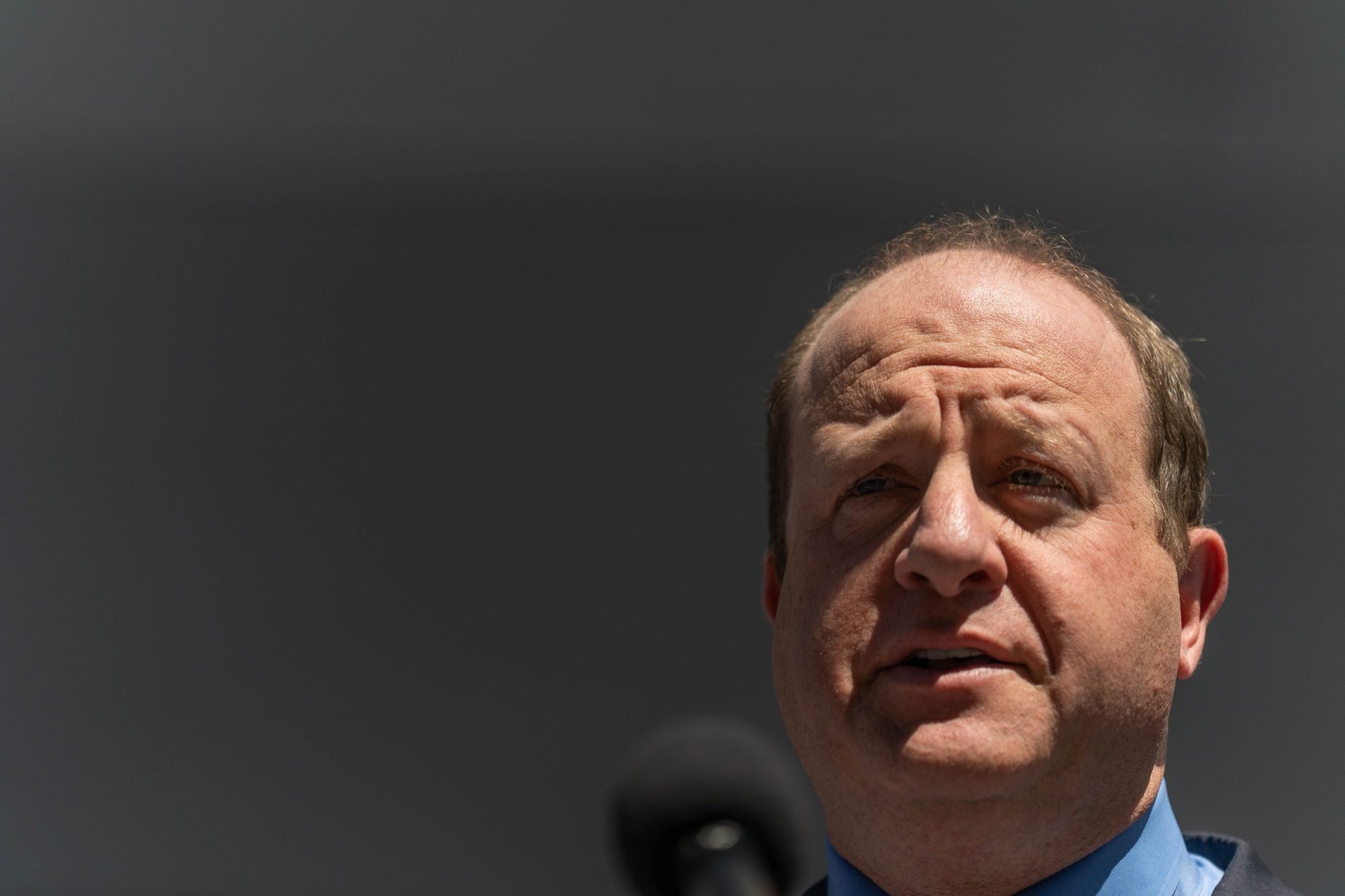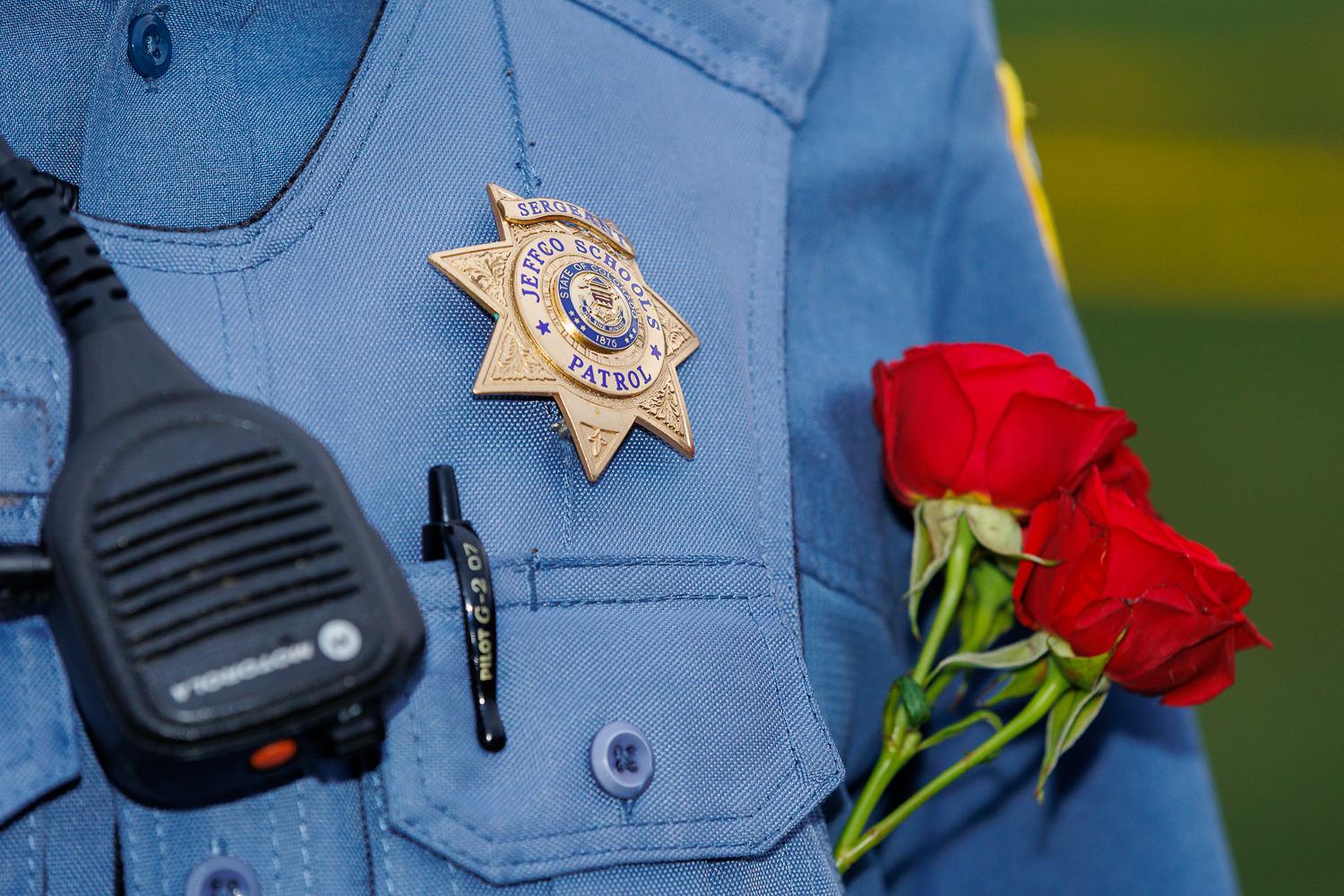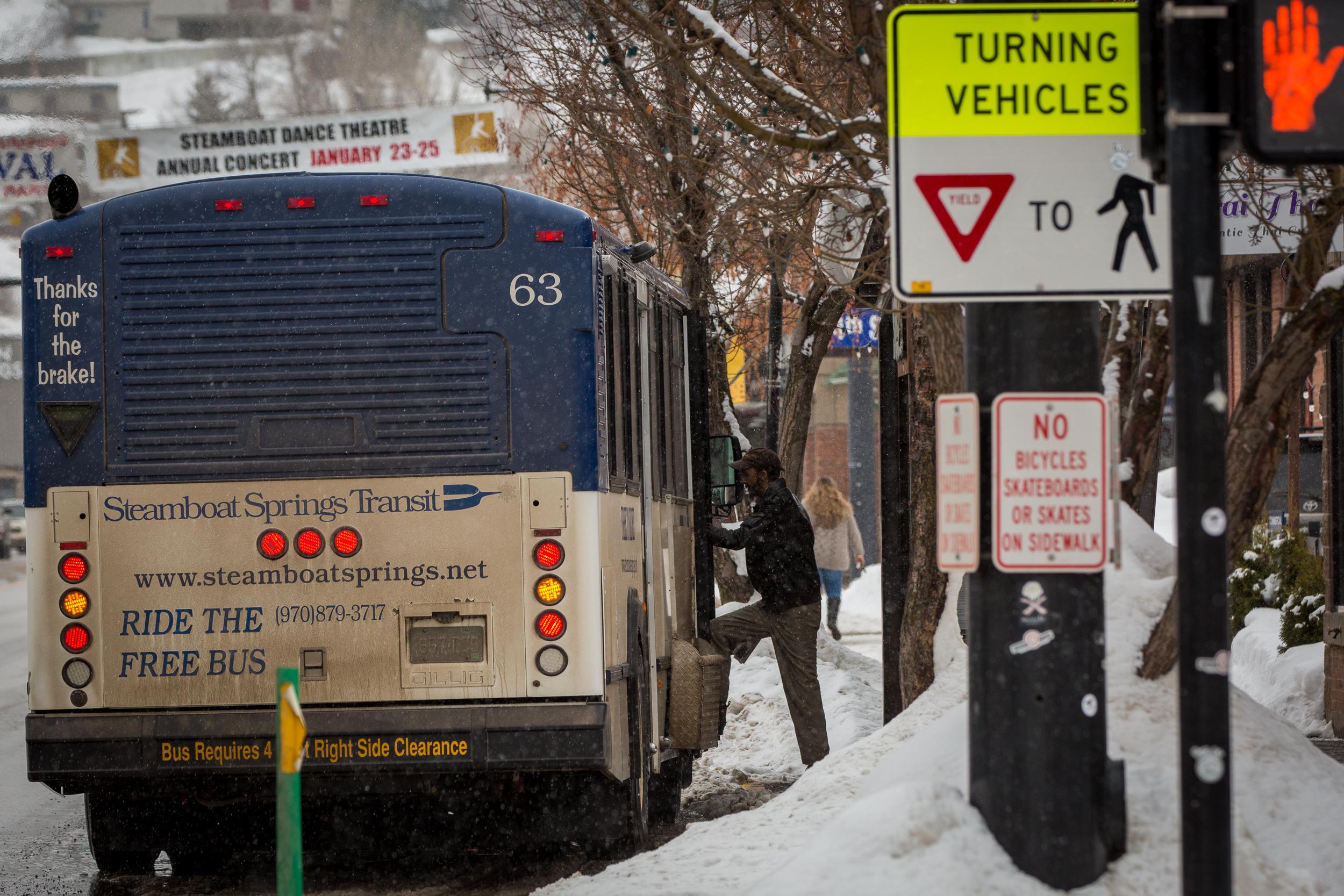In his monthly converation with Colorado Matters, Governor John Hickenlooper answers listeners' questions about his role in the legislative session, discusses how he'd like to see health care reformed at the state level, and explains what communities need to do to prepare for what could be a brutal fire season.
The governor also talked with host Ryan Warner about some of the bills he's considering vetoing. You can listen to that answer at our Facebook page, where you can also submit a question for next month's interview.
[Photo: MVerlee/CPR]
BEGIN TRANSCRIPT:
JH: Well we are obviously in a heightened state of readiness. We have put more capacity into our firefighting measures but you can have all the preparedness to kingdom come and at a certain point the conditions are so much more powerful. The fire that was in New Mexico this weekend, I was in, down in Manassa, actually on the Salazar family ranch for a couple days and the wind was a steady sixty miles an hour and by the end of Saturday you couldn’t go outside, it was so smoky. And that fire was I don’t know, a hundred miles away. When you have a wind like that, in conditions like this, it doesn’t matter how many tanker helicopters you’ve got with flame retardant or water, it doesn’t matter how much, or how many firefighters you’ve got digging ditches, you can’t stop the movement of that fire.
RW: You talked about ‘increased capacity’ so is that what you mean? You have extra equipment?
JH: Extra equipment and more people set up but again, there are two things that I harp on relentlessly now and that is making sure that those people living in the interface between urban and exurban, the people that are living up in the woods, that they are, that they have what they call “defensible space.” You clear trees away from your home. You make sure you don’t have flammable materials on your roof or on your siding because everyone thinks it won’t happen to them. And the climate conditions and the, just the strange weather we’ve been having, make it a necessity that everyone consider what would happen if one of these fires came into my community.
JH: What’s the second thing you’re harping on?
RW: The second thing I’m harping on is to make sure that the local communities are prepared. So that we have communications systems in place so that all the first responders can communicate to each other, that they are all drilled and are ready, that the local community, in addition to having defensible space, also knows what to do in the event of a fire emergency.
RW: Are you seeing weakness in some communities there?
JH: Yeah, I think that we have a lot more space to fill in terms of just training people and making sure that everyone’s ready.
RW: Training residents? Training?
JH: Residents, local firefighters, local county commissioners. Everybody that we want, it reminds me a little bit of when I was a kid, growing up in the 1960s. And at the height of the Cold War, we had training in our elementary schools of what to do in the case of an air raid alert, if there was, a bombing mission coming into the United States, we were all trained to go out of our classroom, to sit along the hall, cross-legged on the floor, and to wait there until further notice. We did that, it seemed like we did it every month, I’m sure it was once every few months. We don’t have that same level of drilling and preparedness in all communities. Some communities are very well prepared. But not all.
RW: What are you doing to change that? Or is that the Governor’s job?
JH: No, no, that’s everybody’s job. And my job as governor is to, if we see something like that, that we see poses a potential risk, we need to point it out. And so we’re reaching out to the Colorado Municipal League, all the municipalities, the Colorado Counties Incorporated, which is a membership organization that represents all sixty-four counties in Colorado, and to begin looking at you know how do we knit this together. The first step obviously is to go to the Colorado Department of Public Safety and say how, in your outreach, do we put this together. One of the bills we passed in the last session, was to take some of that emergency preparedness out of the Department of Local Affairs and put it into the Colorado Department of Public Safety again as a foundation. So that this kind of training and preparedness could really happen over the course of the summer.
RW: Well Governor, we asked our listeners what questions they have.
JH: Uh-oh.
RW: And one came in from Kurt Neuswanger, who lives in Grand Junction.
JH: Neuswanger, that’s almost as hard to say as Hickenlooper.
RW: As Hickenlooper. He works for a Christian radio station in Grand Junction and his question is about the highest profile issue in the recent special session of the legislature.
Kurt Neuswanger: After repeatedly stating last year that you felt it was not your role to inject yourself into legislative issues, I’m wondering why you decided to personally champion the civil unions bill this year. Why not leave it up to the legislators?
RW: To clarify, it was you who called for this special session and just to echo his comments, you’ve mentioned to us in numerous interviews that you don’t see your role as intervening in legislative business. What was the difference here?
JH: I say that I don’t intervene except in very rare circumstances. Here, I thought partly was an issue of the processes of democracy. That we elect representatives to represent us, and by every measure that we saw, had the civil union legislation come to the floor of the House, for a vote, they would have voted it in. So through political or procedural processes within the house, it was killed and they avoided letting the people elected make a decision. And that happens sometimes. In this case, the way it came about seemed really dismaying.
RW: Was it a real tough decision to call the special session or was it something you pretty plainly knew you wanted to do?
JH: I think the way that the last couple days came down of the legislative session were suddenly it just escalated so dramatically on that Tuesday night. It felt like an unfinished conversation, that everyone was saying there just wasn’t enough time to debate civil unions. Well, if that was really the case, we thought we should make the time, it’s a big enough deal to so many people. The question I ask to people all the time, not all the time, but I have asked, “Do you think people are in their nature, are born gay,” and overwhelmingly people say yes. I think almost every scientific study that I’m aware of says that’s the case. And if that’s true, shouldn’t gay people have all the same legal rights as every other citizen and we just wanted to make sure that there was a chance to have a fair discussion for that.
RW: You’re listening to Colorado Matters. I’m Ryan Warner and we’re at the Capitol, for our regular conversation with the governor, Democrat John Hickenlooper. Let’s hear another question from a listener. John Green [ph] of Frisco, contacted us through Facebook. He’s a musician and he was awfully worried about the so-called ‘Marijuana DUI’ bill. It would have set a legal limit for THC in a driver’s bloodstream. THC is pot’s active ingredient. And critics of this legislation questioned the science: Whether a five nanogram limit actually means someone’s impaired. And they pointed out there’s no way for medical marijuana patients to test their blood at home and make sure they’re legal. You’ve called this bill important for public safety. I’ll say that backers vow to bring it back next year. So what do you say to critics though?
JH: Well this is obviously a contentious issue that is going to come back next year. You know, right now it’s illegal to drive with any THC in your blood. So if anything, we were raising a limit and trying to make it just provide a little clarity. You know, five nanograms, as I understand it, the science has improved sufficiently, that for people to argue with five nanograms. Again that’s enough THC that the vast majority of people are going to be impaired to the point they shouldn’t be driving. That’s what the science tells.
RW: You say the vast majority. So let’s talk about the person who has that and isn’t impaired.
JH: Right, well some people can drink alcohol and function with the same reflexes and drive a vehicle just as well when they above a .08% alcohol. You make a limit. This is what the limit is. If we’re going to make sure our roads are safe, we’re going to look at what does science tell us is an appropriate limit and that seems to be five nanograms and then we should hold ourselves to it.
RW: Finally, Governor, the US Supreme Court next month is expected to rule on the big federal health law, the Affordable Care Act. And I want to zoom in on one part of the law. If the individual mandate is struck down, this is the requirement that everyone have health insurance, would you push for a state mandate like Massachusetts has. It’s been talked about in Colorado in the past. Is that something your administration would like to see?
JH: I’m not sure a mandate is the right word for it but I think we have said from the beginning we want to find ways to expand coverage to more people, to improve outcomes and most importantly to control costs. We are getting…
RW: But you’ve got to get people in the pool.
JH: You’ve got to get people in the pool but there’re a lot of different ways to do that.
RW: What would be an alternative to a mandate?
JH: Well I think if you can create a context where you make it easy for people to be in a pool and at the same time create a financial incentive to embrace that new system, in other words, there’s got to be some economic incentive. It’s got to be an enterprise that makes sense financially. Then it’s going to create momentum of its own. In the end I don’t think you have to mandate it, if it’s crafted properly.
RW: What would that look like then, this thing that is so attractive, I will get health insurance even though I have dug in my heels until now.
JH: There are very, very few people who choose not to have healthcare. I mean very few people. Most people want healthcare but can’t afford it, aren’t at a job that offers it, it’s financially beyond their reach. So the question is, at what point, how much can they pay, and how much coverage do they get. Can we get them coverage for everything? I mean if they’ve got a sleep disorder, do they get coverage for that? If they’ve got a twitchy-elbow, I don’t know medical terms but you know, I don’t think we can cover everything for everyone. But I do think we can create a basic healthcare umbrella that the crucial things that can kill you. Cancer, life threatening diseases. I think everyone deserves to have some coverage there and they’ve got to pay something. Now some people can afford to pay more than others. They’re going to get more coverage than others. A big, giant step would be if we can begin to look at lowering costs and making sure that we aren’t sending people, let’s say Medicaid patients, to the emergency rooms of our hospitals every time they need care, which is THE most expensive way to provide that care. If we can make sure that we have preventative healthcare at a much more robust level, more exercise, better foods, healthier lifestyles. Really push that so employers embrace that. I don’t think government has to mandate something that makes that much sense.
RW: So without a mandate, how do you get people to fill out the form, get insured, who haven’t done that?
JH: People want to fill out a form and be insured. That’s not been the problem. The problem is that they can’t afford their insurance. So what gets them to fill out a form is figuring out what is the appropriate coverage and what is that sliding scale, whereby people can afford it. That is the bottom line. If people can get healthcare coverage that they can afford, they’ll grab onto it without a question.
RW: Am I hearing from a Democratic governor that you don’t like the individual mandate?
JH: No, you must have misheard that. I think that in certain circumstances, mandates are necessary. I mean you’ve got to be sixteen years old to drive. That’s a mandate. You obviously need some mandates. But I think one of the issues around healthcare is, everyone’s talking about you have to have this mandate and yet I think there might be other ways to do it without using a mandate.
RW: Governor, thank you.
JH: Always a pleasure.









